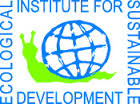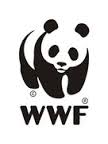La Iniciativa de Acceso se enorgullece de anunciar una búsqueda de Campeones de Escazú.

Ecological Institute for Sustainable Development
The Ecological Institute for Sustainable Development (Miskolc) promotes activities and policies that support sustainable development. Specifically, Miskolc carries out environmental assessments, develops sustainable resource use plans, engages in environmental education efforts, and raises awareness about ecological consumer protection.
- Address
-
Hungary
- fnzs@ecolinst.hu

Environmental Management and Law Association
"EMLA is a non-profit, non-governmental organization working in environmental law and environmental management on the national, European, and international level. The main activities of EMLA are public interest environmental legal advice and litigation, environmental legal research, consulting and education, and carrying out of environmental management projects. EMLA is a founding member of Justice and Environment and a member of the European Environmental Bureau. EMLA is a founding member of The Access Initiative and served as Core Team Member for Europe between 2000 and 2013. EMLA carried out two full-scale TAI Assessments of Hungary and a TAI Assessment for the forestry sector in addition to participating in a joint research project with other TAI members to explore the possibility of using the TAI Assessment methodology to influence international development decision-making. In 2013 and 2014, EMLA contributed to the Environmental Democracy (Legal) Index research of TAI. In early 2015, EMLA began working on the Aarhus Convention Index indicators.
- Address
-
Garay u. 29-31.HungaryBudapestBudapest 1076
- drkiss@emla.hu
- Phone
- +3613228462

Hungarian Environmental Partnership
"The Hungarian Environmental Partnership Foundation (Ökotárs Alapítvány) is a not-for-profit, politically independent organization promoting environmental improvement and awareness among civil society and the general public. The foundation supports the development of the environmental NGO movement by providing grants, training, fellowships and technical assistance, as well as long-term collaboration and consultancy services. The foundation has managed a number of larger grant programs using funds provided by priave donors, governments and international organizations. Their emphasis is on projects that address local environmental problems, raise environmental awareness and public participation in Hungary. "
- Address
-
Szerb utca 17-19HungaryBudapestBudapest 1056
- move@okotars.hu
- Phone
- +36-1-4113500

Nimfea Association
Nimfea is a Hungarian non-governmental organisation that works in the Great Hungarian Plain on projects related to environmental protection. The organisation has approximately 1,000 members, including many local professional groups. Nimfea maintains a bird rehabilitation center and runs experiments on bird habitat reconstruction in the region. In order to further their conservation goals, Nimfea also advocates against environmentally damaging investments and large-scale infrastructure projects. Lastly, Nimfea also has a wide range of education programs to raise awareness about the importance of conservation and waste management.
- Address
-
Hungary
- srb@nimfea.hu

WWF Hungary
WWF Hungary was founded in 1991. WWF Hungary has four main programs: climate change, forests, freshwater and priority species. Conservation efforts in the past have focused on reintroducing beavers to the Danube River, helping to develop the Danube Strategy and rehabilitating Liberty Island. WWF Hungary has also worked to protect the Csarna-valley, a virgin forest, which is the home to many endangered species and the Hungarian lynx.
- Address
-
Hungary
- laszlo.galhidy@wwf.hu